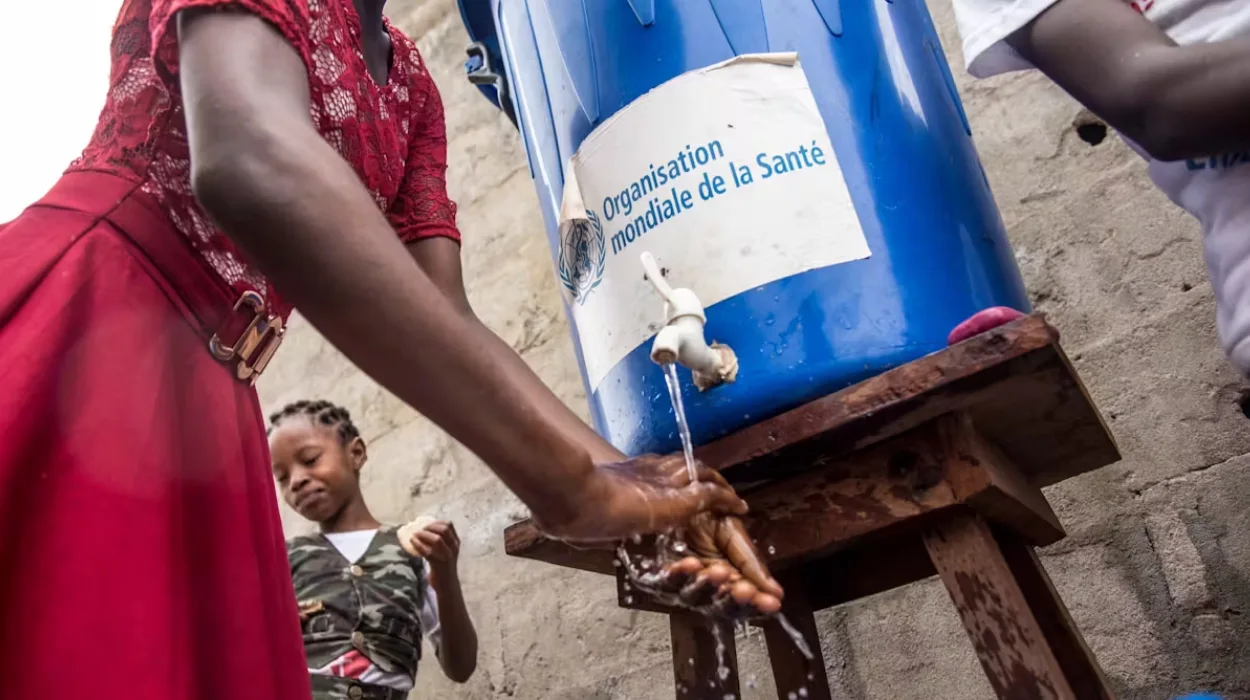The 2025 withdrawal of U.S. research funding from South Africa represents one of the most significant external funding shocks to the country’s public health and scientific ecosystem. A calculated R 1.85 billion or about 97 million U.S. dollars-have gone down the drain due to basic research spending, and institutions are in a mess. Major national research institutions and top universities like the University of Cape Town and the University of the Witwatersrand have to bear the impact of funding shortfalls of almost R728 million ($38 million) in 2025 alone. Their research pipelines have been endangered and the livelihood of over 1,400 research staff is in jeopardy as well, due to these cuts.
Of the 150 active contracts in progress in the 39 dedicated HIV and tuberculosis (TB) clinical research sites in South Africa, at least 150 are due to be suspended. These trials are halted, which slows the innovations in the field of diagnostics, therapeutics, and vaccine development. Publicly paid tests such as BRILLIANT, an HIV vaccine project have already been suspended after a 46 million grant costs, which has slowed down progress in fighting one of the most threatening pandemics in the world.
Public Health Programs Under Threat
The reduction of funds does not go only to laboratory studies but to the clinic. In one instance, the National TB Program in South Africa has an annual budget of R4.5 billion ($244 million), with approximately 67 percent of their resources generated locally. Nevertheless, it is also woefully reliant on U.S. donations to keep up with diagnostics infrastructure, digital radiology services, and community-based care. These capabilities are now under immediate threat.
The defunding has disrupted health surveillance systems reliant on real-time data collection and electronic patient records—foundational tools for managing disease spread and planning public interventions. As trials falter and services stall, South Africa’s national health goals risk significant regression.
Impact on Talent, Capacity, and Global Research
Brain Drain and Academic Setbacks
Among the most pressing consequences is the potential for long-term damage to South Africa’s scientific capacity. Young researchers, postgraduate students, and early-career scientists reliant on U.S.-funded grants now face academic uncertainty. Many are forced to abandon projects or delay graduation due to stalled data collection, loss of mentorship, or terminated fieldwork programs.
A wave of resignations among senior research professionals is already underway, threatening institutional continuity and mentorship pipelines. The loss of personnel not only erodes national expertise but weakens South Africa’s standing in the global health research community.
Disruption of Innovation Ecosystems
South Africa’s participation in global clinical trials has been vital to the development of antiretroviral therapies, TB diagnostics, and more recently, COVID-19 responses. The interruption of long-term studies risks the deterioration of biobanks, patient cohorts, and population-based health data collected over decades. These data assets are irreplaceable foundations for innovation in disease control.
The cascading impact is also international. Global drug development pipelines and multilateral research collaborations depend on robust African participation, particularly in diseases endemic to the region. The absence of South Africa as a trial site or knowledge partner reduces the speed and scope of new scientific breakthroughs.
Institutional and Civil Society Responses
Emergency Measures by SAMRC and Universities
In an attempt to mitigate the damage, the SAMRC has launched an emergency support fund of R132 million ($7.3 million). While notable, this stopgap represents less than 10% of the lost funding. Universities are engaging donors and the government for interim support but acknowledge that short-term solutions cannot replace long-term stability.
Academic administrators warn that without restoration of consistent funding channels, many flagship programs—including those focused on HIV prevention in adolescent girls and maternal health trials—may be lost entirely.
Civil Society Mobilization
Health activists like Treatment Action Group and MSF have raised their voices against the withdrawal of aid as a health emergency. These organizations claim that patients (both the current and prospective ones) will lose access to the innovative treatment regimens, trials that can save their lives, and the support services in case the funding gap persists. There are calls to replace multilateral donors and their African coordinated response becoming increasingly urgent.
They also reflect a rising expectation of accountability and transparency of global aid flows, which should be introduced in strategic planning to ensure the creation of a softer landing in relation to abrupt disengagement.
Drivers Behind U.S. Policy Shifts
Geopolitical Reprioritization
This withdrawal of aid is part of the shift in administration of foreign aids of the U.S. that has focused more on redirecting funds in restructuring of its economy. Numerous top-level global health programs (such as PEPFAR, and CDC-funded international research platforms) have suffered budget cuts, or stagnated allocations.
There was a lack of systematic consultation with partner countries that stood to lose and there was no transitional funding. This abruptness has amplified the economic shock across South Africa’s scientific institutions and prompted criticism from global health leaders.
A Broader Pattern of Disengagement
The decline of long-term health investment reflects an overall development of geopolitical reprioritization with scientific diplomacy being sidelined by security and industrial policy. Nevertheless, experts caution that such withdrawal may lead to the erosion of U.S. influence in global health governance and destabilizes gains made in some areas of the globe where it had served to bolster defenses against epidemics.
By withdrawing to some extent as the leading financier of research on infectious diseases in Africa, the U.S. could undermine much of the progress made in the last twenty years.
Toward a Resilient Research Future
To compensate for the vacuum, South Africa and its partners will need to raise their level of domestic innovation expenditure as well as strengthen scientific collaboration in the region. The pan-African health research frameworks like the African CDC Pathogen Genomics Initiative or public-private partnerships may create longer-term cushions.
Incorporation of philanthropic actors, which include the Gates Foundation and Wellcome Trust, would ascertain continuity into some trials and training programs. Nevertheless, none of these paths can substitute the predictability or scope of American funding in the short-term future.
Reinforcing Global Solidarity and Scientific Equity
The disruption serves as a wake-up call for the global community on the fragility of scientific ecosystems dependent on single donor streams. Long-term health research must be treated as a core pillar of international development and humanitarian cooperation—not as an optional or easily retractable expense.
Dan Corder, a South African commentator on development issues, has underscored the magnitude of the crisis, stating that the scale of research collapse threatens not only national scientific autonomy but also the shared global fight against pandemics.
What he said is indicative of the increasing concern that the pulling out on this level poses a threat to the gains achieved across borders.
South Africa is in a critical stage now. The question is whether a country can sustain its position in the world as a leading center in terms of the research on infectious diseases by adjusting the balance, diversifying support tools, and mobilizing international solidarity in achieving a common goal of equal scientific development. The echoes of the U.S aid reductions clarify what has been long apparent, the international health defense could only be robust as the system it is affecting the most and these systems have now undergone a severe examination.





